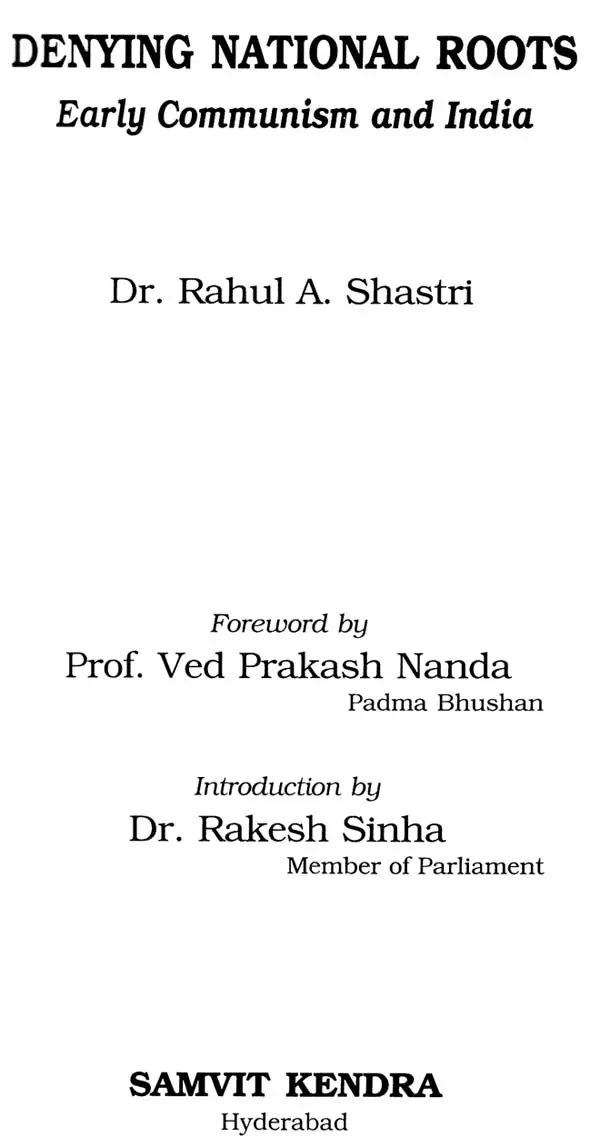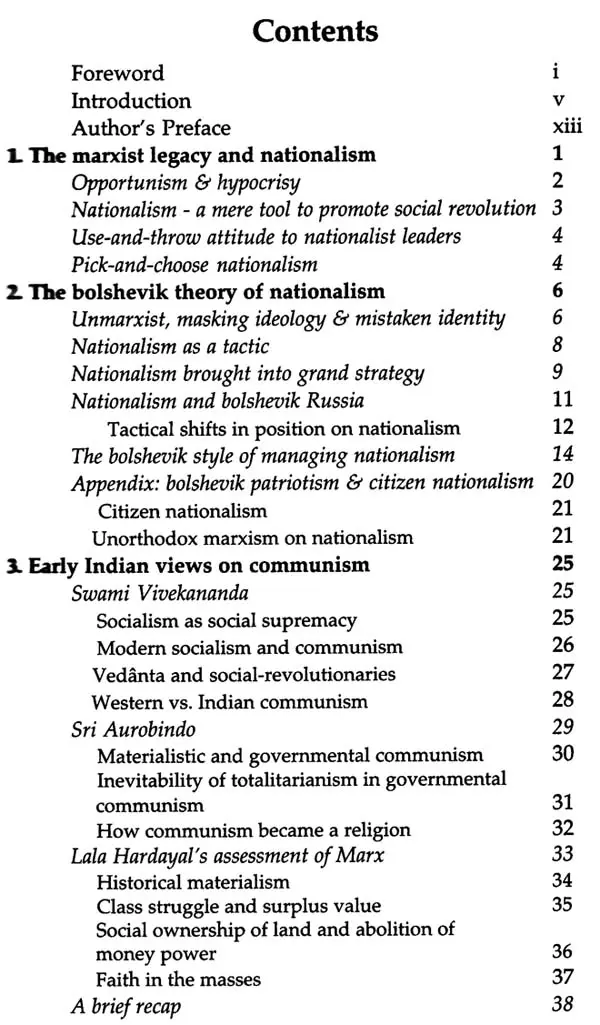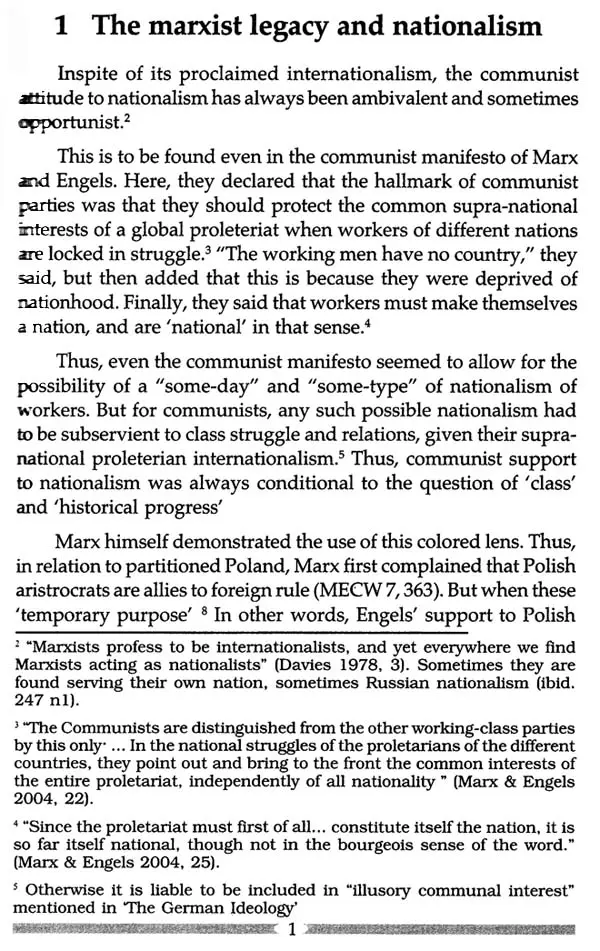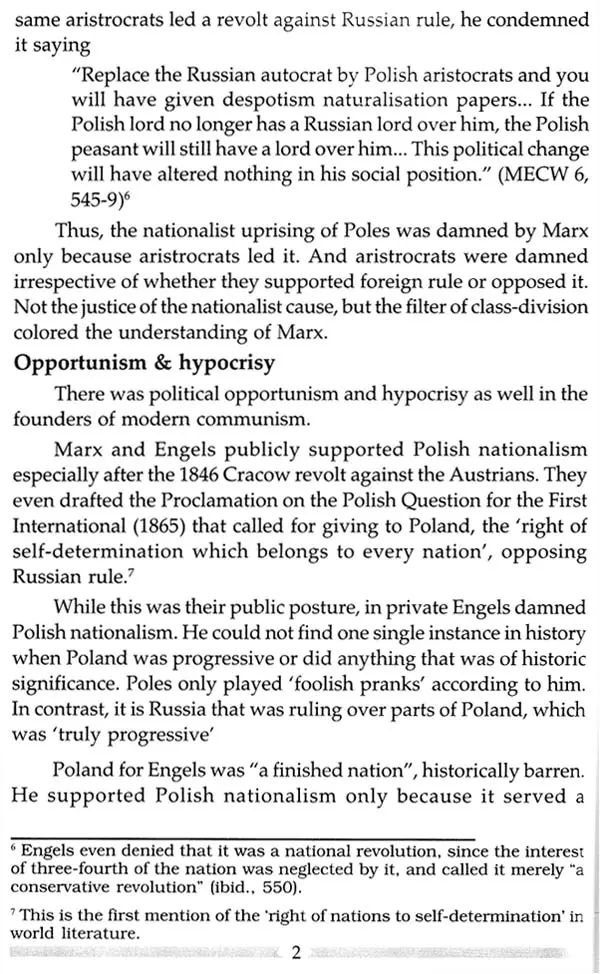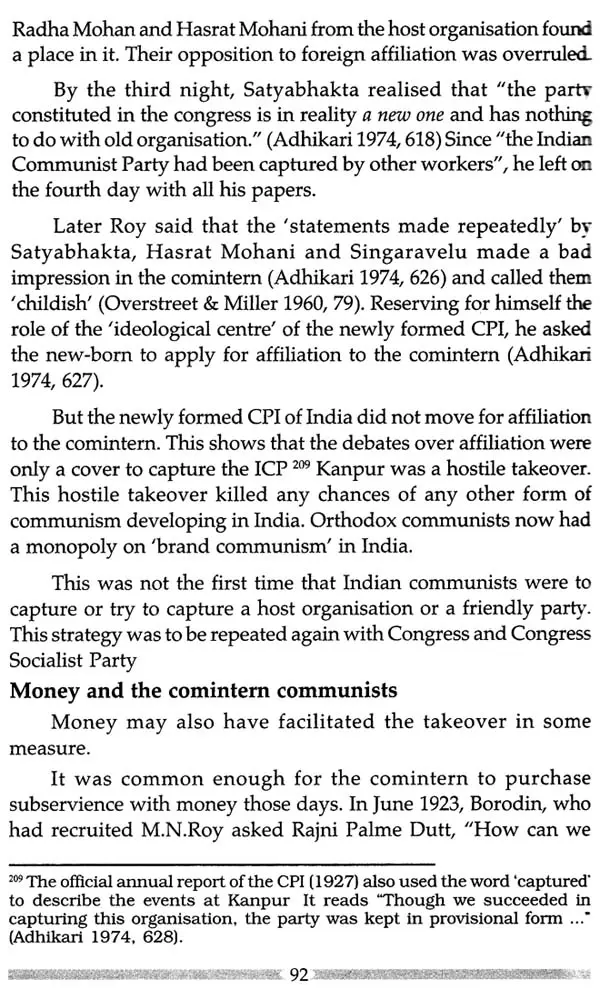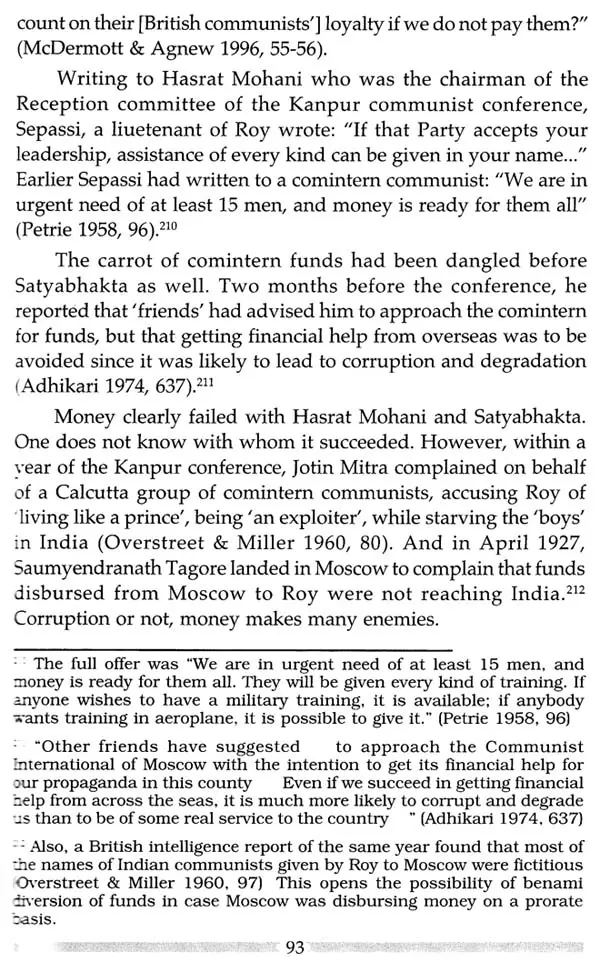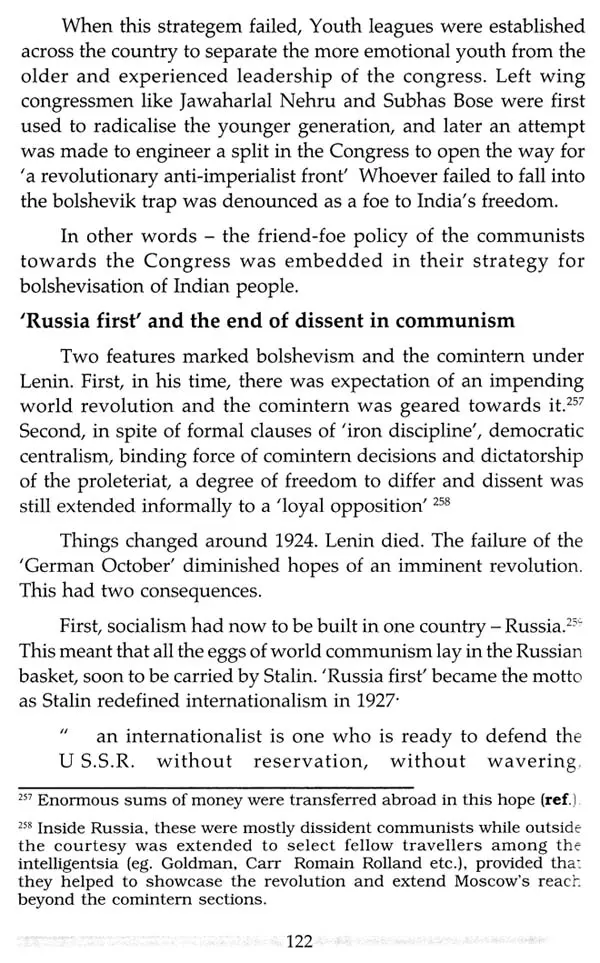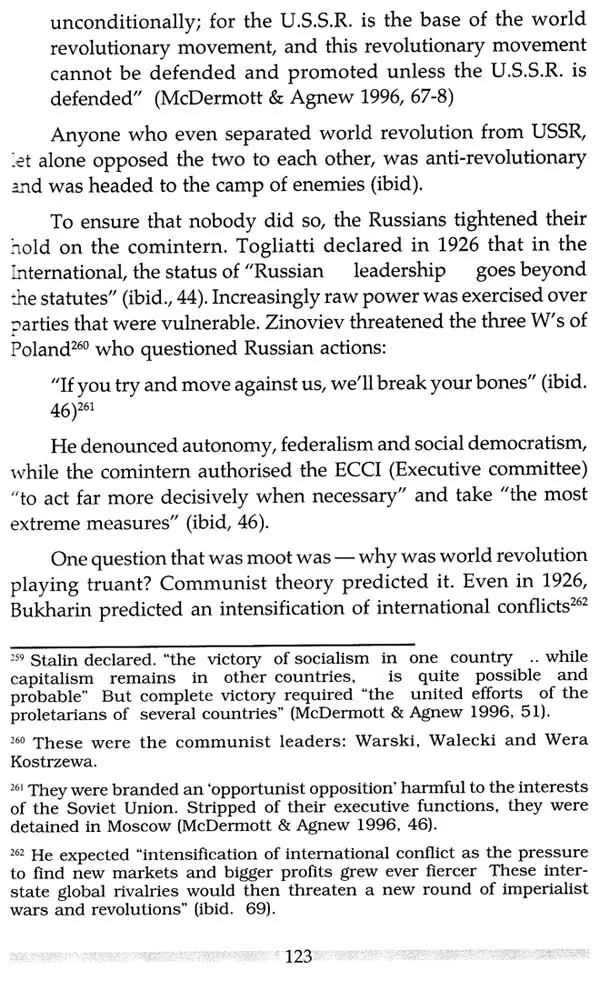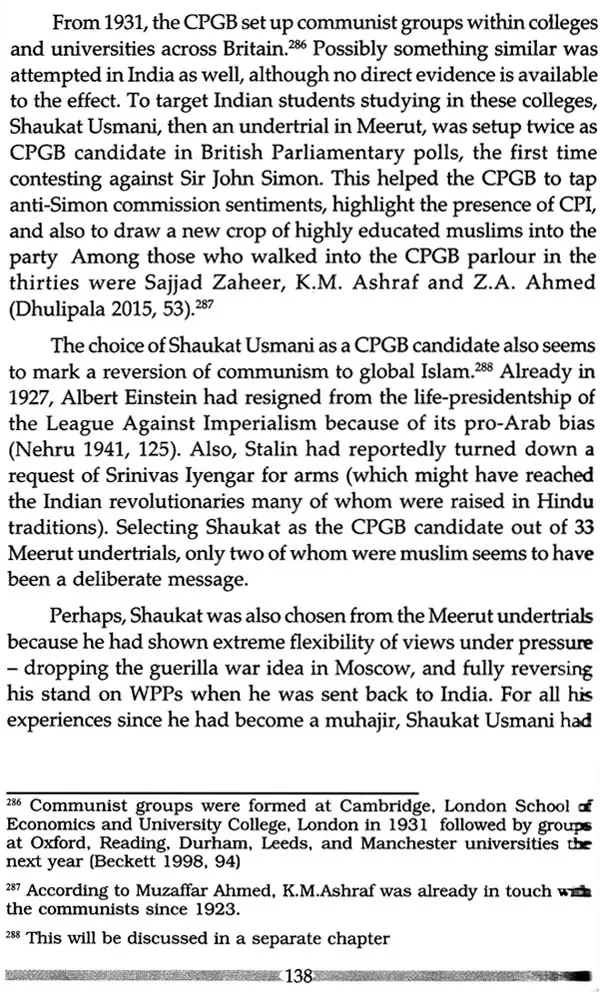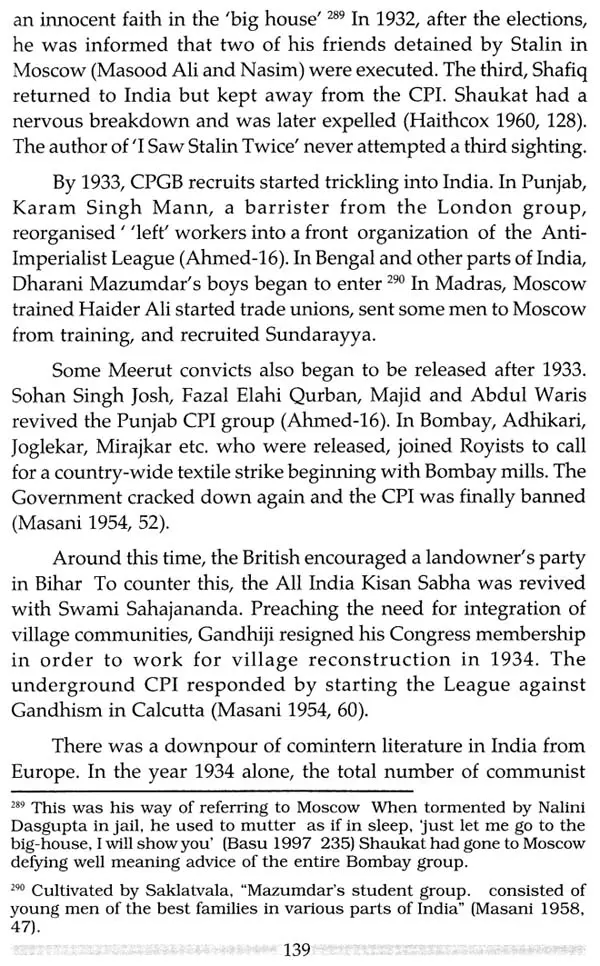
Denying National Roots - Early Communism And India
Book Specification
| Item Code: | UAS852 |
| Author: | Rahul A. Shastri |
| Publisher: | Samvit Prakashan and Media Pvt. Ltd. |
| Language: | English |
| Edition: | 2018 |
| ISBN: | 9788193373750 |
| Pages: | 148 |
| Cover: | PAPERBACK |
| Other Details | 8.50 X 5.50 inch |
| Weight | 190 gm |
Book Description
Dr.Rahul A. Shastri is a Gold Medallist in MA (Economics), awardee of Nawab AliYavar Jung Gold Medal, is a Ph.D. from Osmania University. He was a Lecturer in Osmania University, Director of Research Centre for International Business, CVR College of Engineering, and was on the Guest Faculty, SMS, Hyderabad Central University.
He is currently the President of Samvit Kendra and Jt.Director, National Akademi of Development (NAD).He has published 27 research papers and articles indifferent areas in Economics and also authored 4 books.
Meticulously researched and very well written, Denying National Roots: Early Communism & India is an insightful study, indeed a treasure trove for students, scholars, and even those who are just interested in understanding how, from the time communism was introduced in India to the early 1930s, it related to nationalism. This is the period covered in this study, and from that time forward, world communism directed most of the communist efforts and thought in India. Amply footnoted, the text references numerous authoritative sources to present a clear picture of the communists' maneuvering and their struggle to penetrate the Indian Independence Movement, their failure to do so, and their internal rifts, subterfuges, and missteps, which ultimately led them to the role they undertook of being subservient to World communism.
The authors introduce the reader to the "ambivalent and sometimes opportunist" communist attitude toward nationalism, which goes back to the communist Manifesto of Marx and Engels. This study finds communist leaders indulging in "political opportunism and hypocrisy" and exhibiting an "erratic and shaky" attitude toward the nationalists, as they supported nationalism in some countries while decrying it in others. Lenin's statement is illustrative :
"Marxism cannot be reconciled with nationalism, be it even of the 'most just,' purest, most refined and civilized brand. In place of all forms of nationalism, Marxism advances internationalism."
The study sheds light on a subject unfamiliar to most. In the early stages of the introduction of Communism in India, Swami Vivekananda, Sri Aurobindo, and Lala Hardayal responded to this new ideology. Swami Vivekananda believed that Indian communism "would be inspired and illuminated by 'spiritual individualism' or the light of Advaita vedanta." Likewise, Sri Aurobindo suggested that "Vedanta alone is a practical basis of communism. It is the only practical foundation because the experience of Vedanta alone substantiates the idea of brotherhood of souls and ensures the death of egoism." Lala Hardayal, as the first Indian to write a biography of Karl Marx, in 1912, supported the ideas of social ownership of land and the abolition of the power of money and capital.
The following letter is one of many documents which unmask the character, history and role of Indian Communists in India. In October 1949. B.T.Ranadive, General Secretary of the Communist Party of India, wrote to Mao Tse-Tung, the Chinese leader:
"I wish to assure you and through you, the people of China that the Nehru government which pursues a policy of hostility to Chinese people and still continues its recognition of the bankrupt Kuomintang government, does not represent the wishes and the will of the people of India. The overwhelming majority of Indian people decisively stand for friendship and cooperation with the great Chinese people. Nehru government on the other hand follows the dictates of the Anglo-American imperialists, who wish to build India as a bastion of reaction against China. The Anglo-American imperialists carry on their nefarious conspiracies in Nepal and Tibet under the cover offered by the Nehru Government. Thus Nehru government is directly advancing the game of the enemies of the Chinese people. I wish to assure you and through you the people of China, that the Communist Party of India will unmask all the anti-Chinese intrigues that Nehru government might hatch under the dictates of the American imperialists and rally the people to defeat them."
It is a historical fact that the love and affection of communists for Marxism was mutated into support to Communist countries. Initially they supported the former Soviet Union as their Fatherland but the clash between the Soviet Union and China for hegemony over the international communist movement led to a bitter feud inside the CPI. The CPI got divided into pro-Soviet and pro-Chinese camps and each considered the interests of its respective "beloved' communist country as sine qua none of its faith. Their transnational loyalty therefore remained uncompromised at all critical junctures of the India's political and war history The pro-soviet group was dubbed as "right' communist and the pro-chinese as 'left" Communist. Soviet Communist and government praised Jawharlal Nehru government and lobbied within the CPI to change the 'left Communist position. In November 1955 Khrushchev visited India and virtually ordered the CPI to support Nehru government (Pravda 12 August 1955). Unlike the Communist Party of Soviet Union (CPSU), the Chinese Communist Party (CCP) instructed its followers in India that it was impossible to build socialism in India under such a "reactionary nationalist (leader) like Nehru.
